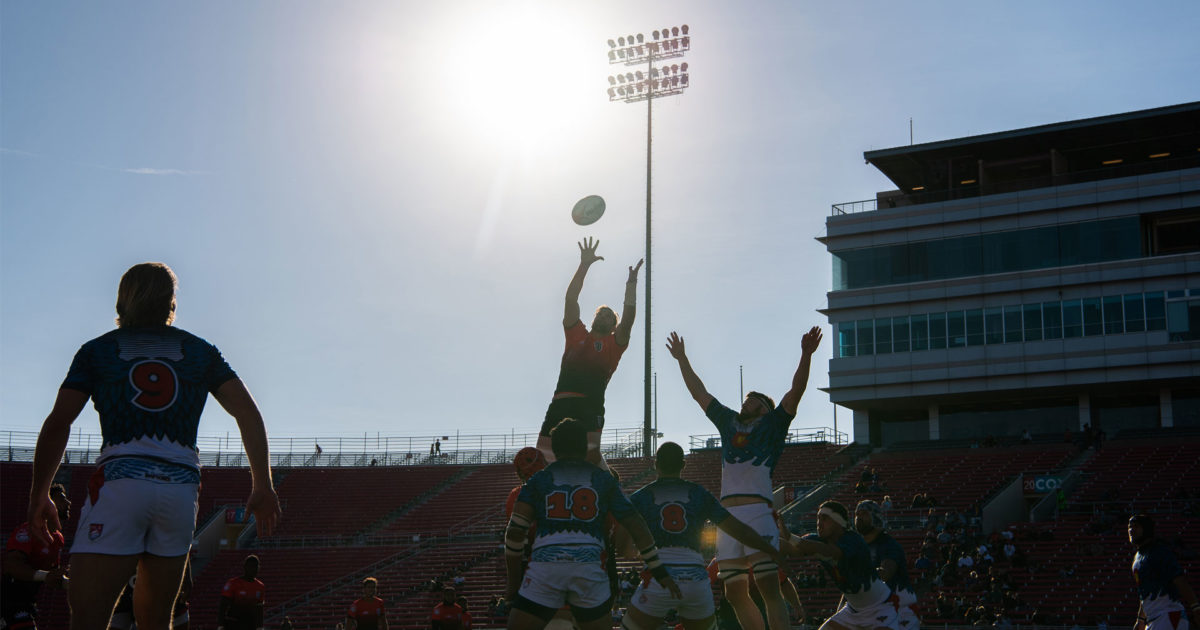'Drove about four and a half hours, paid fifty dollars out of my pocket to try out for the team'

Ross Depperschmidt is one of many feel-good stories to have come out of Major League Rugby’s three seasons of rapid success.
He trod the road less travelled on his rise to the professional ranks after first being unaware of what the sport was when he began studying at the University of Alabama in 2012.
Eight years later, Depperschmidt has caps next to his name in America’s top flight of domestic rugby, featuring regularly for NOLA Gold this year before their campaign was cut short.
The centre paid fifty dollars to try out for the New Orleans franchise in August of 2018, temporarily casting aside his master’s degree in engineering to pursue a career in one of the fastest-growing sports in America.
Two months later, he received a phone call that would change his life as he made the decision to sacrifice academic opportunities to pursue professional rugby in the United States.
“I ended up coming down here, drove about four and a half hours, paid fifty dollars out of my pocket to try out for the team,” Depperschmidt said.
“The tryout day, it was pissing down rain and there were puddles all over the field, pretty poor field conditions. There were about forty guys there, all pretty good rugby players or good athletes at least, but I figured that I’d just give it all I’ve got.
“About a month or two after that, I got a call from Taylor Howden who was the Academy coach, a current player at the time.
“It took some contemplating cause I could pursue another career academically with my engineering degree or chase the dream of playing rugby so I decided to go with that and so far it’s working out.”
Depperschmidt grew up in Flower Mound, Texas, playing the more traditional American sports before discovering rugby at the University of Alabama.
While they weren’t regarded as a powerhouse of American collegiate rugby, Alabama offered him what he needed to develop his skillset.
https://www.instagram.com/p/CACVJ5WgekZ/
Unlike the more popular American codes, rugby is generally offered as a club sport through universities around the country. This appealed to Depperschmidt with everyone playing fully committed to the cause, paying extra on top of tuition to travel and take the field each week.
“You have to be committed because you’re paying out of pocket and you’re dedicating your time. At college you can go party, you can be studying but you’re allocating time every day to go train.
“It’s a cool aspect of it because everybody is there on their own time so you know they want to be there.
“The first taste of the comradery with all the guys at any level, it’s an awesome feeling to have 15 guys on a field working together towards one common goal. That really appealed to me personally. I’ve been a massive competitor my whole life, so they offered that opportunity for me at school.”
Depperschmidt finished graduate school in Spring of 2018 before moving to a small town in New Zealand to play rugby and travel ahead of a career in what was looking like engineering.
After playing a club rugby season while in Matamata, he returned to the United States with an opportunity to take his game to the next level.
“I wanted to go over there, I wanted to travel. I figured it was the last time before I started working a big boy job that I’d be able to explore a little bit and play some footy over there.
“Went over there for about four months and played a season over there, came back in August of 2018 and the coach of the USA South team hinted that I should go and do this tryout in New Orleans for NOLA Gold.”
After being selected for the NOLA Academy, the midfielder spent a season learning, practicing and playing, while training alongside the Major League Rugby squad once a week.
He was one of roughly a dozen players to be participating in the program as they worked tirelessly for higher honours.
“You had limited opportunities where you could be around the guys to still get a feel for the professional atmosphere while also putting in the extra work.
“Came to one full practice a week, tried to get as much information off the top-level guys that we have in the team like Con Foley and Scott Gale, Jean-Pierre Eloff and Carl Meyer.
“Just trying to pick their brains as much as possible because they have a wealth of experience and knowledge of the sport.”
After captaining the NOLA Gold Academy side last year, Depperschmidt was promoted to the first team in late 2019 as a “sign of good faith” from the General Manager.
The 26-year-old went on to feature in all but one of NOLA’s five matches in 2020, before the season was cancelled due to the coronavirus outbreak.
“Every day love being around the boys and it’s really just strictly love of the game and love of competition. I can work a nine to five job when I hit 35-40 years old.
“I know I have a lot more improvement to go, I’m nowhere near where I want to be as a finished product so hopefully it’s the beginning of a good career for me.”



















































